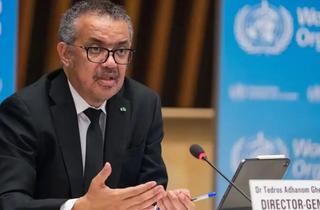WHO Director-General Tedros Adhanom Ghebreyesus took to the X platform to express concern over the devastating impact of the Israeli occupation forces' attacks on the hospital. He revealed that a WHO-led team, along with partners, managed to assess the situation at al-Shifa days after the siege ended, uncovering significant destruction and loss of life.
"@WHO and partners managed to reach Al-Shifa — once the backbone of the health system in #Gaza, which is now an empty shell with human graves after the latest siege. The team witnessed at least five dead bodies during the mission,” Ghebreyesus stated.
Describing the scene, he noted that most buildings within the hospital complex were extensively damaged, with many assets reduced to ashes. He emphasized the immense challenge of restoring even minimal functionality to the hospital in the short term, highlighting the urgent need for a thorough assessment by engineers to determine safety for future use.
After multiple failed attempts, a WHO-led mission finally gained access to the hospital on Friday, revealing the severity of the situation. Ghebreyesus lamented that recent efforts to revive basic services at al-Shifa Hospital had been lost, leaving the population deprived of lifesaving healthcare services once again.
With only 10 out of Gaza's 36 main hospitals remaining partially functional, Ghebreyesus stressed the urgent need for action in Gaza as famine, disease outbreaks, and trauma injuries escalate among the trapped Palestinian population.
He called for the protection of remaining health facilities, humanitarian workers, and the opening of additional land crossings to facilitate access to essential services. Additionally, Ghebreyesus urged the establishment of a functional deconfliction mechanism, unimpeded access for humanitarian aid, and a ceasefire to address the dire situation in Gaza. (ILKHA)



 Ekonomi
Ekonomi
 Güncel
Güncel
 Güncel
Güncel
 Güncel
Güncel
 Dünya
Dünya
 Dünya
Dünya
 Dünya
Dünya
 Ekonomi
Ekonomi
 Dünya
Dünya
 Dünya
Dünya





